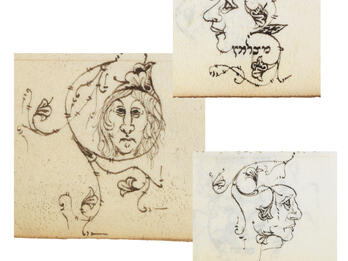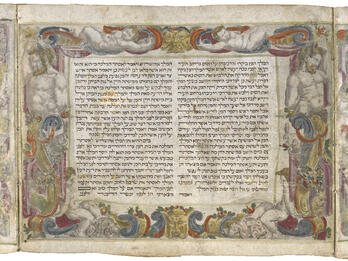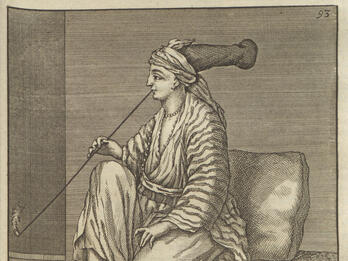Protector of Women
1
2
3
4
5
6
7
20
21
30
31
32
33
34
35
36
37
38
39
40
41
42
43
44
45
46
47
48
49
50
Notes
[Sommo’s readers would recognize donne honeste e belle from Petrarch’s sonnet “Zephiro torna, e ’l bel tempo rimena” (Zephyrus returns and brings the fine weather), Canzoniere 310.—Trans.]
[Benvenida Abravanel, ca. 1473–after 1560. She lived in Naples and later in Ferrara.—Trans.]
[The Rieti family (da Rieti, Rietti, and possibly Arieti) was a prominent family of bankers originating in the town of Rieti. The Sfornis were a prominent family in north-central Italy, the most famous of whom was exegete and physician Ovadiah Sforno (ca. 1470–ca. 1550).—Trans.]
[Sommo’s readers would recall Dante’s famous canzone “Donne ch’avete intelletto d’amore” (Women who understand love), which appears in Vita nuova 19.—Trans.]
Credits
Published in: The Posen Library of Jewish Culture and Civilization, vol. 5.





